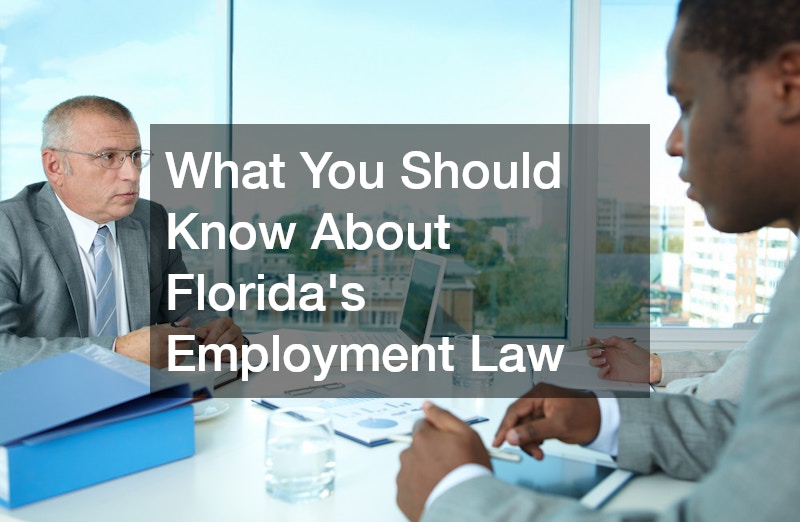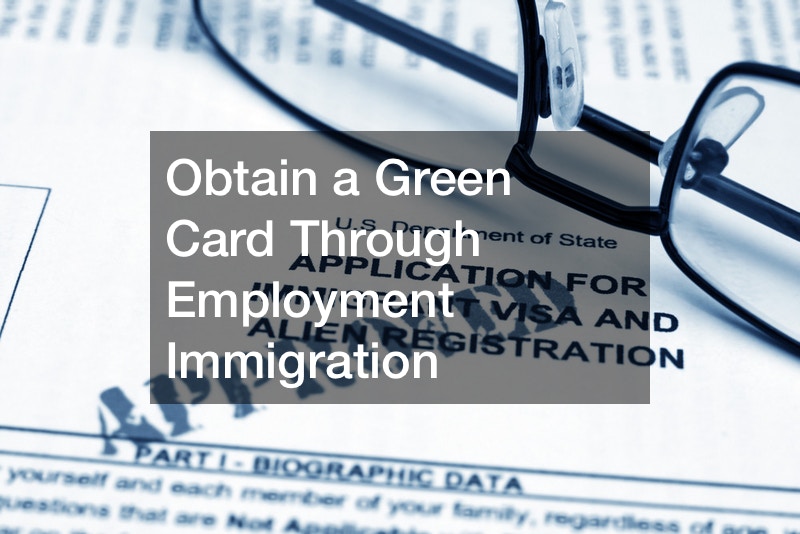
Employment law is a critical aspect of protecting both employers and employees, ensuring that the rights and responsibilities of each party are clearly defined and upheld. In Florida, the state’s employment laws are influenced by both federal regulations and state-specific statutes. If you are an employee or employer in Florida, it’s essential to understand how these laws affect the workplace. Recently, there have been updates in this area, and being aware of the new Florida employment law changes can help you stay compliant and informed.
This guide will provide an overview of key aspects of Florida’s employment laws, including wage and hour regulations, discrimination protections, workers’ compensation, and recent changes in the legal landscape.
1. At-Will Employment
Florida is an at-will employment state, which means that either the employer or the employee can terminate the employment relationship at any time and for any reason, as long as it is not illegal (such as discriminatory or retaliatory reasons). This gives employers flexibility in hiring and firing decisions, but it also means that employees can leave a job without notice or cause.
However, there are important exceptions to the at-will rule, particularly concerning wrongful termination. Employers cannot terminate employees for discriminatory reasons based on race, gender, religion, national origin, disability, or age. Additionally, retaliation against employees for filing complaints, whistleblowing, or exercising their legal rights is prohibited under new Florida employment law and federal protections.
2. Minimum Wage and Overtime
Florida’s minimum wage laws differ slightly from the federal guidelines, and it’s crucial for employers to stay updated on state-specific rates. As of 2024, Florida’s minimum wage is $12 per hour, with plans for gradual increases until it reaches $15 per hour by 2026. Tipped employees must be paid a minimum wage of $8.98 per hour, provided their tips bring their total earnings to at least the state minimum wage.
Additionally, under both federal and new Florida employment law, non-exempt employees are entitled to overtime pay for any hours worked over 40 in a workweek. Overtime is calculated at 1.5 times the employee’s regular rate of pay. Employers should be diligent in tracking employee hours to ensure compliance with these wage and hour laws, as violations can result in penalties and lawsuits.
3. Anti-Discrimination Laws
Florida adheres to federal anti-discrimination laws under Title VII of the Civil Rights Act of 1964, which prohibits employment discrimination based on race, color, religion, sex, or national origin. In addition, the Florida Civil Rights Act expands protections against discrimination, ensuring that employees are not subject to unfair treatment in the workplace based on their characteristics.
Recent updates to new Florida employment law now also include protections against discrimination based on sexual orientation and gender identity. These changes reflect a growing recognition of LGBTQ+ rights in the workplace, bringing Florida in line with federal protections following the U.S. Supreme Court’s 2020 ruling in Bostock v. Clayton County, Georgia.
Employers in Florida should ensure that their workplace policies comply with both federal and state discrimination laws and that their employees are trained on how to avoid discriminatory practices.
4. Workers’ Compensation
Florida requires most employers to provide workers’ compensation insurance for their employees. Workers’ compensation is designed to cover medical expenses, lost wages, and rehabilitation costs for employees who suffer work-related injuries or illnesses. Under new Florida employment law, businesses with four or more employees (including full-time and part-time workers) are required to carry this insurance.
For certain industries, such as construction, the law is stricter, requiring workers’ compensation coverage for even a single employee. It’s important for employers to understand their obligations under Florida’s workers’ compensation laws to avoid penalties and ensure that their employees are protected in case of injury or illness.
5. Paid Leave and Family Medical Leave Act (FMLA)
Florida does not have a state-specific law requiring employers to offer paid leave. However, under federal law, the Family Medical Leave Act (FMLA) applies to Florida employers with 50 or more employees. The FMLA allows eligible employees to take up to 12 weeks of unpaid, job-protected leave per year for reasons such as:
The birth or adoption of a child
A serious health condition affecting the employee or a family member
Military family leave
Although Florida has not implemented its own paid leave law, employers should still be aware of their responsibilities under FMLA and ensure that employees are properly informed about their rights.
6. Non-Compete Agreements and Employment Contracts
Non-compete agreements are enforceable in Florida, provided they meet certain requirements under new Florida employment law. These agreements are designed to protect businesses from losing trade secrets, confidential information, or clients when an employee leaves the company. However, the terms of non-compete agreements must be reasonable in terms of geographic scope, duration, and the type of business activity restricted.
The enforceability of these agreements can vary depending on the specifics of the contract and the industry in which the employee works. Employers should work with legal counsel to draft non-compete agreements that comply with Florida law and are enforceable in court.
.




